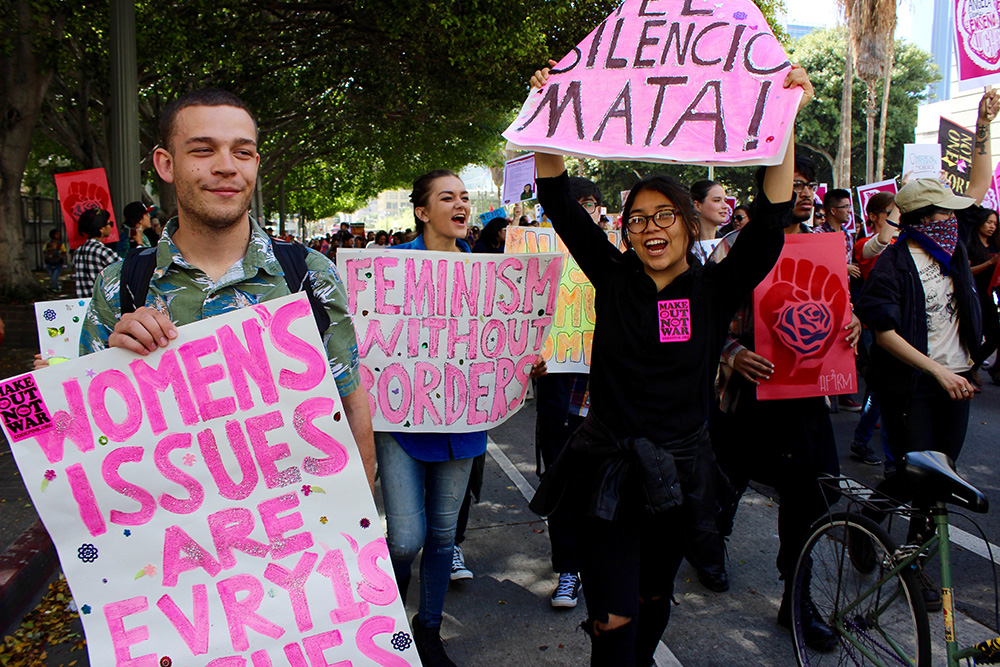Hundreds of people of all ages. genders, classes, races and ethnicities expressed solidarity and love when they marched on Sunday as part of the International Women’s Day March and rally in Los Angeles.
The colorful and vibrant procession acted as an empowering affirmation of feminism, the struggle for gender equality and women’s liberation. A feminist, according to Nigerian novelist Chimamanda Ngozi Adichie, is “a person who believes in the social, political and economic equality of the sexes.” The ugly and systemic issues feminists fight against juxtaposes with the beauty created by unity and community. This fight does not demand violence, but a resistance against violence and control.
political and economic freedom
Mothers and women of color led the march, which AF3IRM, a transnational feminist organization, coordinated. The demonstration was a microcosm of the world, where banners artistically expressed worldwide feminist struggles and marchers remembered the recent assassination of Honduran political activist, Berta Cáceres. It is important for all people to recognize the liberation of women as intimately connected to the global struggle for political and economic freedom. The same global power structures and economic systems that oppress women are the same systems perpetuated by the military-industrial complex, corporations and political parties.
The liberation of women will not be achieved until the discussion of femicide in Ciudad Juarez. The emancipation of women will not be manifested until the Zapatista movement in Chiapas Mexico succeed in resisting the harmful and oppressive effects of neoliberal economics. Transnational feminism demands Palestinians obtain self-determination from Israeli military-occupation and settler-colonialism. True equality will not be delivered until the Kurdish people are safe from ISIS and state violence in Turkey.
demands us to think
On the individual level, feminism demands us to think and deconstruct gender norms and relationships. It requires both men and women to look at relationships as a partnership and not as an ownership. It teaches men to respect women and their right to choose a career of their choice and their right to say no.
There is no justice until we the people can freely discuss and confront the issues afflicting communities at home. According to the National Coalition Against Domestic Violence, “Every 9 seconds in the US, a woman is assaulted or beaten.” This is followed by the statistic showing one in five women and one in 71 men have been raped in their lifetime.
A narrow definition
According to writer and essayist Rebecca Solnit in her book, “Men Explain Things To Me,” “So many men murder their partners and former partners that we have well over a thousand homicides of that kind a year — meaning that every three years the death toll tops 9/11’s casualties, though no one declares a war on this particular kind of terror.” It is not because men are born to be violent, but because society defines masculinity in a narrow way.
The aforementioned march testifies that these issues are all connected to each other by the language of domination and control. The struggle for women’s rights is a matter of questioning the legitimacy of authority and those who exert power.







